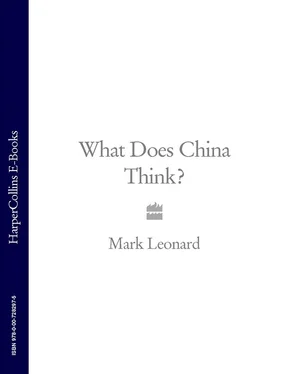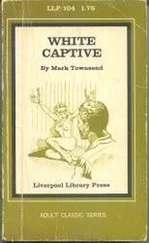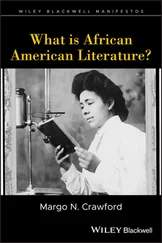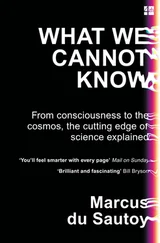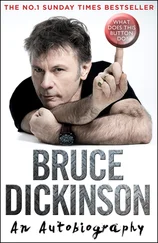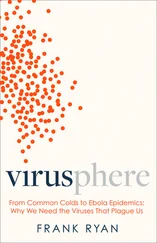‘The Foreign Policy Centre,’ I began, ‘is four years old. We have around twenty staff, we publish twenty-five policy reports a year and host around fifty seminars.’ Wang Luolin nodded politely and smiled before delivering his killer blow: ‘CASS is the highest academic research organization in the fields of philosophy and social sciences. We have fifty research centres that cover 260 disciplines and sub-disciplines, and 4,000 full-time researchers.’ As he said the words, I could feel myself shrink into the seams of my vast chair: Britain’s entire think-tank community is numbered in the hundreds; Europe’s in the low thousands; even the think-tank heaven of the USA cannot have more than 10,000. But here in China, a single institution – and there are another dozen or so other think-tanks in Beijing alone – had 4,000 researchers. I discovered later that even people at CASS think that many of these researchers are not up to scratch, but the raw figures were enough to intimidate me in that early meeting.
Wang Luolin’s one-upmanship on size was just the beginning of a well-worn strategy designed to bewilder and co-opt outsiders. We spent many hours engaged in polite conversation without touching on the specifics of our co-operation. These elaborate courtship rituals, seemingly devoid of substance or direction, have been honed over centuries to nullify Western negotiating strategies, and bind foreigners into Chinese ways of doing things, creating webs based on personal contact rather than contractual obligations. At the beginning of the trip, I had hoped to get a quick introduction to China, learn the basics, and go home. But after spending what felt like weeks in these introductory meetings, sitting around sipping tea and exchanging pleasantries I ended up getting sucked in.
I had stumbled on a hidden world of intellectuals, think-tankers and activists who were thinking big thoughts. I soon realized that it would take more than a few visits to Beijing and Shanghai to grasp the scale and ambition of China’s internal debates. My mind was made up – I wanted to devote the next few years of my life to understanding these radical developments; to document the living history that was unfolding before me. I became, so to speak, an accidental sinologist, visiting Beijing so frequently that it began to feel like a second home. And, with each visit, my entanglement with China’s fate grew deeper. I became friendly with many of China’s new thinkers and watched their theories develop over time, evolving in tandem with the breathtaking changes to their country. I saw them take Western ideas and adapt them into a new Chinese approach for dealing with the world – joining an intellectual journey that China began when it first became entangled with the West in the nineteenth century.
The old Summer Palace in Beijing was as large as a city. People who saw it said it was more grandiose than the pyramids; more perfect than the Parthenon; and more transcendent than Notre-Dame. Even Victor Hugo, a man rarely stuck for words, struggled to capture its beauty: ‘Build a dream with marble, jade, bronze and porcelain,’ he said, ‘cover it with precious stones, drape it with silk, make it here a sanctuary, there a harem … gild it, paint it, have architects who are poets build the thousand and one dreams of the thousand and one nights, add gardens, basins, gushing water and foam, swans, ibis, peacocks, suppose in a word a sort of dazzling cavern of human fantasy with the face of a temple and palace, such was this building.’
But this edifice, which took 150 years to build, went up in a whiff of imperialist smoke when British and French troops stumbled upon it in 1860. All that is left today are a few desultory fragments and some cardboard scale models which signally fail to conjure up the palace’s former glory. These dilapidated remains have been carefully preserved by successive Chinese governments. Like the scar of Ground Zero in New York City, they play a defining role in the Chinese psyche – arguably as great as any building that is still standing. The memory of the Summer Palace, ‘Yuanmingyuan’ as it is known in Chinese, acts as an open wound that can be salted whenever citizens need to be mobilized, or reminded of how the Communist Party saved China from foreign defeat. Yuanmingyuan is a physical embodiment of the ‘century of humiliation’ which ran from China’s defeat in the Opium Wars of 1840, through the loss of Taiwan, the various Japanese invasions and the civil war right until the Communist Revolution of 1949.
For some intellectuals, the remains of Yuanmingyuan also tell another story about modern China. This story is not about the damage which colonial powers have done to China, but of the destruction which the Chinese have inflicted upon themselves by importing – and misapplying – foreign ideas. In July 2006, Zhang Guangtian, an avant-garde theatre director, staged a controversial play, called Yuanmingyuan , that dramatized the relentless quest to modernize China by importing ideas from abroad, a history that has seen the country leap from one totalizing philosophy to another. Zhang Guangtian’s play challenged his compatriots with a heretical question: who really destroyed Yuanmingyuan? Taking the spotlight off the imperial powers, he showed how the Chinese people themselves have been complicit in the despoiling of this national icon which he treats as a metaphor for their dreams and ideals.
The story begins in 1860 with a group of peasants who lounge around, complaining bitterly about the Chinese emperor’s neglect of ordinary people. When a British soldier arrives on the stage, the peasants encourage him to attack the imperial palace so that they themselves can loot its remains. The same three actors then metamorphose into idealistic students – part of the 4 May ‘Science and Democracy’ Movement of 1919 – who desecrate the ‘feudal’ ruins to show their commitment to Western modernity. In the next scene the same actors return as Red Guards from the Cultural Revolution, turning the ruins into a rice paddy to show off their revolutionary fervour. The guards, in turn, become bureaucrats from the 1980s who line their pockets by converting the holy site into an amusement park. The action then shifts to 2005 when the same actors play local officials who line the lakes of Yuanmingyuan with plastic sheets in a bid to save water, causing such outrage that they provoke the country’s first ever public environmental hearing. The second part of Zhang Guangtian’s play is an unflinching exposé of the problems caused by China’s recent embrace of the market: environmental pollution, official corruption, the growing gap between rich and poor, the appalling conditions of China’s mines. The play confronts the audience with the need to take responsibility for China’s problems rather than assigning blame on foreign invaders. The playwright’s message is subtle: it is not a plea to shut China off from the world, but a call to his fellow citizens to forge their own path into the future, rather than blindly embracing Western goods and ideas. His play gives dramatic form to the question that is mobilizing his native country: what does China need to do to take control of its own destiny?
Under the shadow of globalization
A growing body of Chinese thinkers believe that since their country crawled out of the chaos of the Cultural Revolution, it has simply replaced the shadow of Maoism with another fundamentalist philosophy: the cult of the United States of America. They complain that when Deng Xiaoping opened China’s doors to the world, it was the USA that burst in. Its market philosophy set the rules for economic development. Its demands for democracy set the standards for political reform. And its foreign policy defined what was acceptable and unacceptable on the world stage. The USA has taken on the role of an all-powerful god whose moods define the weather. In the same way that Chinese peasants of old lived in constant fear of divine retribution, China’s most pressing goal has been to avoid the wrath of the hegemon, crafting a foreign policy that hides China’s ‘brightness’ with humble behaviour, while making ritual sacrifices on issues ranging from North Korea to Sudan in order to satisfy US demands.
Читать дальше
